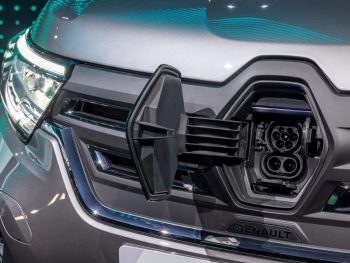Van fleets not already planning for the transition to electric light commercial vehicles (eLCVs) should use 2022 to set out how to successfully integrate them into their operations.

According to Arval UK, availability of these vehicles is likely to remain constrained next year. Therefore, companies which have a clearer plan of their future requirements will be in a better position to place vehicle orders and help secure supply.
Paul Hyne, commercial director, explained: “We’re keen to help LCV fleets to plan ahead for their needs, as we know electric van adoption is lagging well behind that of electric cars. That’s likely to be for a number of reasons, ranging from low production numbers and current vehicle choice, to the absence of a clear and obvious tax incentive such as the Benefit-in-Kind situation with cars.
“However, as the production of diesel vans, just like cars, ends in 2030, fleets need to be examining in detail how to begin the process of electrification, if they’re not already doing so. Next year is a good time to take that step and order vehicles to help secure availability ahead of supplies potentially increasing in 2023.”
Arval is finding that larger van fleets tend to be further ahead in their plans – and that eLCV adoption is probably going to be trickier for many than cars, but it’s easily possible with a plan and starting the process of getting vehicle orders placed.
“We’re already seeing a situation where electric car whole-life costs are comparable, or in some cases more favourable, than ICE vehicles, but this is not currently not as clear for van fleets.
“Operational questions are sometimes not always as easy to answer either, such as how to access overnight charging for van drivers without off-street parking and how to quickly charge vans that are used regularly for longer journeys.
“There are solutions to all of these questions, but they do require more consideration and planning than electric car adoption – this is something that we will continue to help our customers to work through over the next year.”
Hyne also said that feasibility studies and trials involving a small number of vans were one way of fleets developing effective eLCV policies and gaining support from their drivers with ‘first-time-drive’ experiences.
“Where we have appropriate eLCVs within our mid-term rental fleet, we’re encouraging operators to rent one or two as a taster, to help them see how they operate in different roles across their business and in real-world conditions. Showing the effectiveness of these vehicles is a great way of creating acceptance amongst drivers and gaining support at board level too.”

